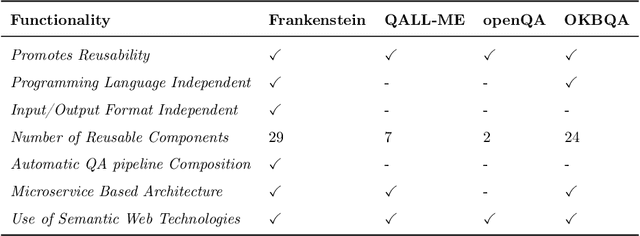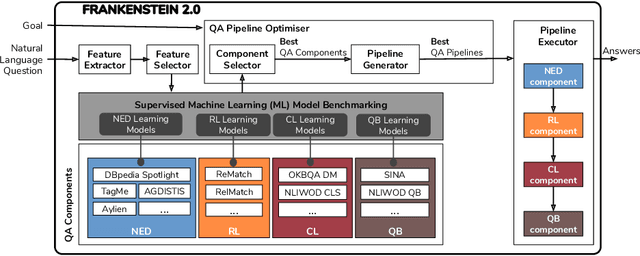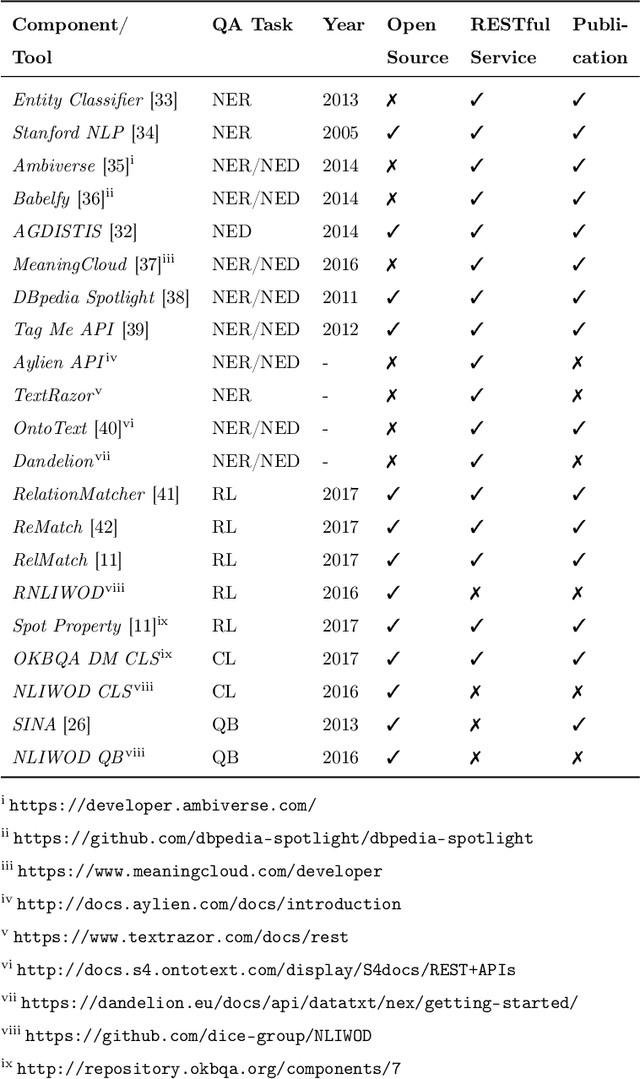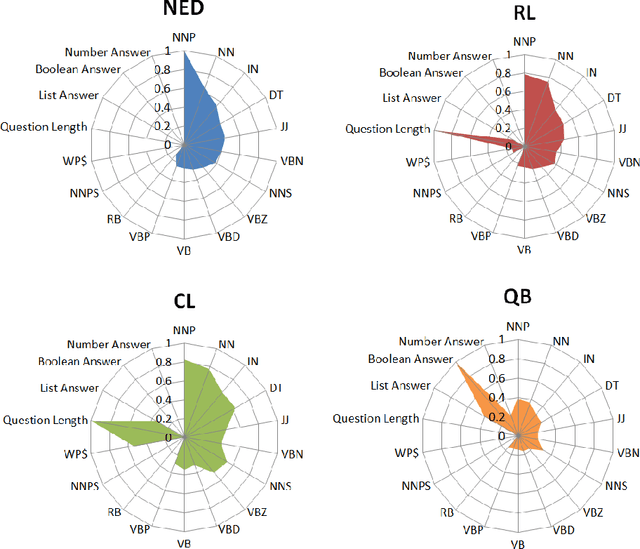Ioanna Lytra
Towards Optimisation of Collaborative Question Answering over Knowledge Graphs
Aug 14, 2019



Abstract:Collaborative Question Answering (CQA) frameworks for knowledge graphs aim at integrating existing question answering (QA) components for implementing sequences of QA tasks (i.e. QA pipelines). The research community has paid substantial attention to CQAs since they support reusability and scalability of the available components in addition to the flexibility of pipelines. CQA frameworks attempt to build such pipelines automatically by solving two optimisation problems: 1) local collective performance of QA components per QA task and 2) global performance of QA pipelines. In spite offering several advantages over monolithic QA systems, the effectiveness and efficiency of CQA frameworks in answering questions is limited. In this paper, we tackle the problem of local optimisation of CQA frameworks and propose a three fold approach, which applies feature selection techniques with supervised machine learning approaches in order to identify the best performing components efficiently. We have empirically evaluated our approach over existing benchmarks and compared to existing automatic CQA frameworks. The observed results provide evidence that our approach answers a higher number of questions than the state of the art while reducing: i) the number of used features by 50% and ii) the number of components used by 76%.
No One is Perfect: Analysing the Performance of Question Answering Components over the DBpedia Knowledge Graph
Sep 26, 2018



Abstract:Question answering (QA) over knowledge graphs has gained significant momentum over the past five years due to the increasing availability of large knowledge graphs and the rising importance of question answering for user interaction. DBpedia has been the most prominently used knowledge graph in this setting and most approaches currently use a pipeline of processing steps connecting a sequence of components. In this article, we analyse and micro evaluate the behaviour of 29 available QA components for DBpedia knowledge graph that were released by the research community since 2010. As a result, we provide a perspective on collective failure cases, suggest characteristics of QA components that prevent them from performing better and provide future challenges and research directions for the field.
 Add to Chrome
Add to Chrome Add to Firefox
Add to Firefox Add to Edge
Add to Edge